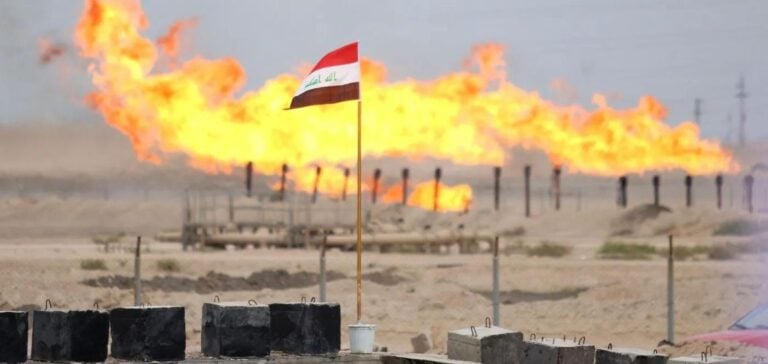Iraq is currently increasing its crude oil export capacity by 300,000 barrels per day (b/d) by installing two new turbine pumping units at its Southern Gulf terminals.
The Iraqi Oil Ministry announced the move on July 25, aimed at alleviating bottlenecks in loading operations.
The new pumping units are located at the Zubair-2 depot, in the oilfields west of Basrah.
Hayan Abdulghani, Minister of Petroleum, points out that this equipment enables the oil produced and stored to be transported to other depots and pumping stations, as far as the Fao onshore terminal and the Al-Basrah offshore terminal (ABOT), as well as to its four anchorage points in the Gulf.
Current Capacity and Infrastructure Challenges
The current export capacity of Iraq’s Gulf terminals is limited to around 3.5 million b/d, of which 1.25 million from ABOT and 2.25 million from anchor points.
However, ABOT’s capacity has been reduced due to the deterioration of the pipelines linking it to the Fao terminal.
Work to repair the pipelines and upgrade the terminals has been underway for several years, but has encountered financial difficulties.
“The Ministry is working on development projects to maintain and increase export capacity,” says Abdulghani in an official statement.
Compliance with OPEC+ quotas
However, the immediate benefits of the new pumping units may be limited.
Iraq has pledged to maintain crude exports at 3.3 million b/d to improve compliance with OPEC+ production quotas, under pressure from other cartel members.
Iraq exceeded its 4.0 million b/dquota by 1.184 million b/d in monthly excess volumes, according to the OPEC secretariat.
In response, the country has scheduled further compensation cuts until September 2025, forcing Iraq to keep production between 70,000 and 90,000 b/d below its quota.
Export diversification
In addition to exports via Gulf terminals, Iraq also ships a small amount of Qayarah heavy crude, around 30,000 b/d, from the Khor al-Zubair terminal and transports around 15,000 b/d of Kirkuk quality by truck to Jordan.
Production in the semi-autonomous Kurdistan region, estimated at around 300,000 b/d, is not included in the Ministry of Oil’s federal export data.
Iraq’s current efforts to increase its export capacity are crucial to alleviate pressure on existing infrastructure.
The addition of new pumping units improves the flexibility and resilience of the country’s oil supply chain.
However, OPEC+ commitments to reduce production remain a constant challenge.
Impact on the global market
Increasing Iraq’s export capacity could influence the dynamics of the global oil market.
Infrastructure improvements not only facilitate the flow of oil, but also position Iraq as a more reliable player in the international oil market.
However, the quota obligations imposed by OPEC+ moderate the potential impact of this capacity increase.
Iraq’s initiative to increase its crude oil export capacity by adding new pumping units is a significant development for its oil sector.
Although compliance with OPEC+ quotas poses challenges, the improvement in the country’s oil infrastructure testifies to its determination to optimize its export capacities.
This strategy could strengthen Iraq’s position on the world oil market, while meeting the production requirements set by OPEC+.






















